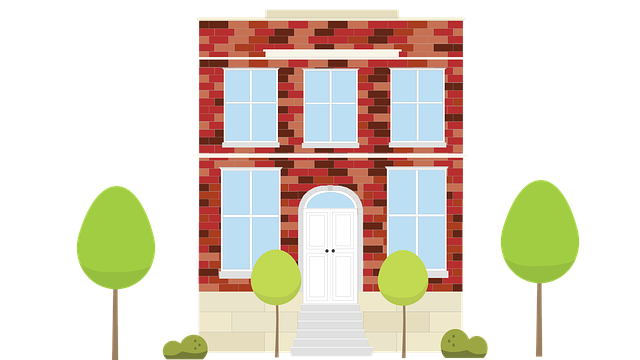State-mandated mold disclosure laws protect homebuyers and sellers by requiring transparency about potential mold issues. A thorough real estate mold inspection before listing or purchasing is crucial to identify and mitigate concerns, ensuring fairness and maintaining home value. Ignoring or concealing known mold problems can lead to legal troubles and mortgage complications. Understanding these laws and conducting inspections is vital for buyers and sellers when navigating real estate transactions involving mold.
Can mold bring down your dream home sale? It’s a growing concern in the real estate market. This comprehensive guide explores the intricate relationship between mold and home transactions. We delve into critical mold disclosure laws, unraveling what buyers and sellers must know to avoid legal pitfalls. Understanding the impact of mold on property value and potential mortgage issues is key. Additionally, we provide insights on conducting thorough real estate mold inspections to protect investments and prevent costly surprises during the buying or selling process.
- Understanding Mold Disclosure Laws: What Every Homeowner and Buyer Should Know
- The Impact of Buying a House with Mold: Potential Risks and Red Flags
- Selling a House with Mold: Navigating the Challenges and Mitigating Mortgage Issues
- Real Estate Mold Inspection: Protecting Your Investment and Avoiding Unwelcome Surprises
Understanding Mold Disclosure Laws: What Every Homeowner and Buyer Should Know

When buying or selling a home, it’s crucial to be aware of state-mandated mold disclosure laws. These regulations are designed to protect homebuyers and sellers by ensuring transparency about potential mold issues within a property. In many jurisdictions, real estate agents are required to disclose known mold problems during the sales process.
For homeowners facing mold in their properties, honesty is paramount. Concealing mold can lead to legal repercussions and even create mortgage issues. A thorough real estate mold inspection before listing your home can help identify and mitigate any mold-related concerns, ensuring a smoother transaction for both parties involved. Understanding these laws is essential for every homeowner and buyer, as it sets clear expectations and helps maintain fairness throughout the real estate process, especially when dealing with issues that could impact the home value and mold.
The Impact of Buying a House with Mold: Potential Risks and Red Flags

Buying a house is an exciting yet crucial process, but what if there’s a hidden threat lurking within the walls? When it comes to purchasing a property, especially in the real estate market, being transparent about any existing mold issues is paramount. Mold disclosure laws vary by region, but many areas now require sellers to divulge known mold problems to prospective buyers. Ignoring or concealing such details can lead to legal complications and even mortgage issues down the line.
A home with hidden mold can present several risks and red flags for potential homeowners. It’s not just about the visible patches on walls; mold can thrive in areas inaccessible to the naked eye, such as behind drywall or under flooring. A thorough real estate mold inspection is essential to assess the extent of the problem. If left unaddressed, mold can significantly reduce the home’s value and even impact the health of future occupants. Therefore, buyers should be vigilant and closely examine any signs of water damage or unusual musty odors, which could indicate a larger mold issue that may disrupt their plans for the property and lead to costly repairs.
Selling a House with Mold: Navigating the Challenges and Mitigating Mortgage Issues

Selling a house with mold can present significant challenges for homeowners and real estate agents alike. In many regions, there are strict mold disclosure laws that require sellers to reveal any known mold issues in the property. Failure to do so could lead to legal repercussions and damage trust with potential buyers. A real estate mold inspection is often necessary to identify hidden mold growth, which can be costly and time-consuming. These factors can impact a sale, especially when dealing with sensitive buyers who may have concerns about health risks and additional expenses associated with remediation.
While buying a house with visible mold may deter some prospective purchasers, those who are willing to negotiate could present opportunities for both parties. Homeowners can mitigate mortgage issues due to mold by providing transparent information during the sale process and offering to conduct necessary repairs or remediations before closing. Lenders typically require a thorough inspection and remediation plan to approve loans on properties with mold, ensuring that the issue is addressed professionally to protect the investor’s interest. This collaborative approach can help maintain the home’s value and facilitate a successful transaction despite the presence of mold.
Real Estate Mold Inspection: Protecting Your Investment and Avoiding Unwelcome Surprises

When considering either buying or selling a property, addressing potential hidden issues like mold is paramount to protect your investment. In many regions, there are strict mold disclosure laws in place that require sellers to disclose any known mold problems before closing. Ignoring these regulations can lead to legal complications and even mortgage issues due to mold.
A comprehensive real estate mold inspection should be conducted by a qualified professional prior to making a significant real estate decision. This step is crucial as it reveals any hidden mold growth, assesses its extent, and determines whether it poses a health risk or could impact the home’s home value and mold. Knowing this beforehand allows buyers and sellers to negotiate repairs, avoid unforeseen costs, and ensure a smooth transaction free from unwelcome surprises.














